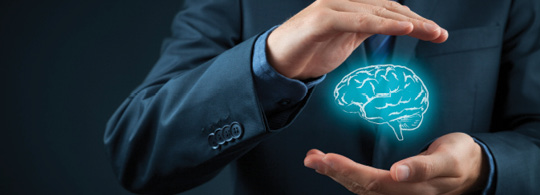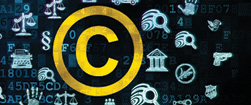
Report From The 60th Annual Intellectual Property Law Conference Sponsored By John Marshall Law School.
May 31, 2016

Each year, on the last Friday in February, The John Marshall Law School presents a conference covering hot topics and current developments in Intellectual Property Law and related areas. The conference features speakers from all over the world for an in depth analysis of recent decisions and future trends. The following were some highlights from this year’s conference
Patents
In Akami Technologies Inc. (MIT) v. Limelight Networks, Inc., on remand from the U.S. Supreme Court, the Federal Circuit further honed the determination of liability for induced infringement of patents. Induced infringement occurs when a person does not commit direct infringement but asks or induces another to do so, or sells a product with advertising or instructions about an infringing use. The Federal Circuit determined that the liability for induced infringement can occur even if the direct infringer did not perform all of the steps of the patent.
In Commil USA LLC v. Cisco Systems, Inc. the U.S. Supreme Court determined that a good faith belief that a patent is invalid is not a defense to patent infringement.
The U.S. Supreme Court has accepted an appeal of the Federal Circuit Court’s decision in Halo Electronics, Inc. v. Pulse Electronics, Inc. At issue is whether “willful” infringement can occur if the defendant should have known of the possibility that it would be infringing on the patent of another. The patent bar is hoping that the U.S. Supreme Court will provide a bright line rule for the need to stay up-to-date in the industry.
Copyrights
In 1991, the U.S. Supreme Court decided that the standard of creativity for copyright protection required a minimal level of creativity (Feist Publications, Inc. v. Rural Telephone Service Co.). Over the last year, numerous decisions explored how low that level of creativity can go. For example, the First Circuit held that a chicken sandwich and its recipe are not copyrightable (Norberto- Colon Lorenzana et al., v. South American Restaurants, Corp.) and the 9th Circuit held that series of yoga poses is not copyrightable (Yoga College of India LP et al. v. Evolution Yoga LLC et al.). However, the 9th Circuit also held that the Batmobile is copyrightable because it is considered a “character” (DC Comics v. Towle).
Trademarks
The Trademark Trial and Appeal Board (“TTAB”) has issued numerous precedential opinions in the last year. The TTAB is an administrative body that hears appeals from decisions by Examining Attorneys in the U.S. Trademark Office, oppositions to registration and post-registration matters such as cancellation proceedings. Of the many opinions rendered by the TTAB in the last year, two decisions resolved issues that arise frequently.

In Ava Ruha Corporation dba Mother’s Market & Kitchen v. Mother’s Nutritional Center, Inc., the TTAB determined when laches will apply. Laches refers to a lack of diligence and activity in making a legal claim of trademark infringement. The TTAB determined that in a suit to cancel a registered mark, the period of laches begins to run on the date the defendant’s mark was published for opposition.
Swiss Grill Ltd. et al., v. Wolf Steel Ltd. addressed the issue of what it takes to prove a bona fide intent to use a trademark in the future. The TTAB held that documentary evidence is not required. However, when the intent is challenged, the TTAB will look at an entirety of evidence to determine if an applicant had a bona fide intent to use the trademark. In this case, the applicant had no evidence that it engaged in any activities that would show an intent to actually use the trademark with any goods. So the application was denied.
Trade Secrets
Unlike patents, copyrights and trademarks, trade secrets do not have federal protection. The Uniform Trade Secrets Act has been adopted in some form by 48 states. However, the versions of the Act are not uniform. With increased activity in the area of protecting valuable processes, formulas and confidential information as trade secrets, Congress has recognized the need for a national uniform act to protect trade secrets. The Defend Trade Secrets Act passed the Senate Judiciary Committee in late January 2016. The trade secret bar is hoping that the bill will become law this year.
Visit the IP blog at: http://www.golanchristie.com/blog
